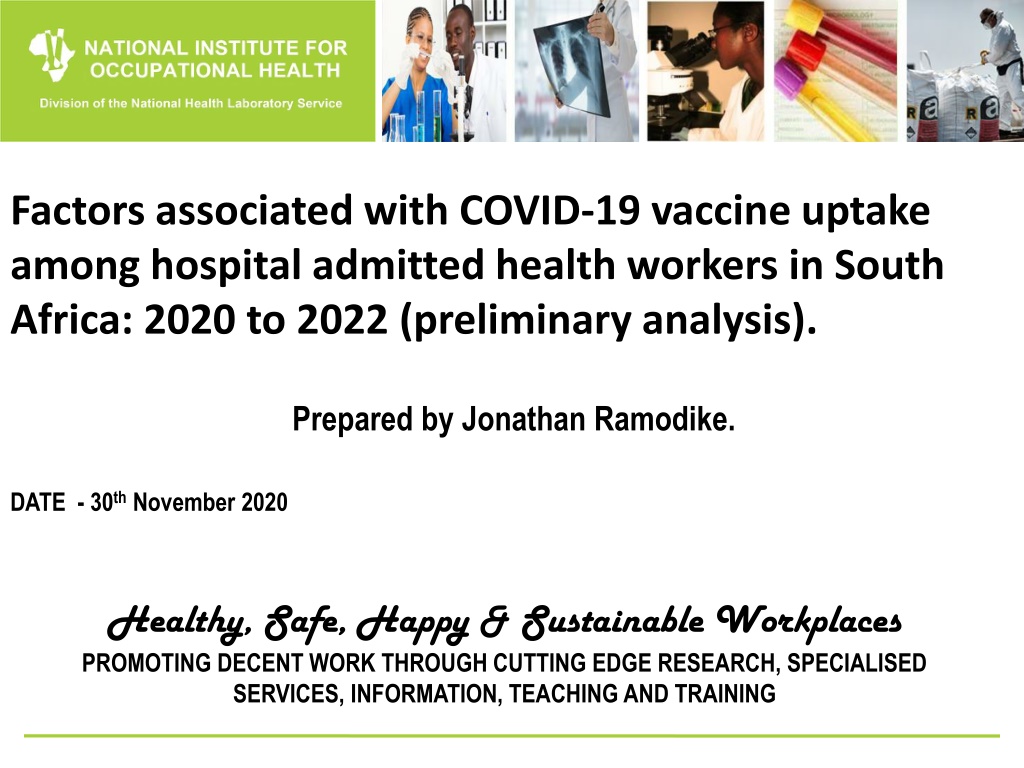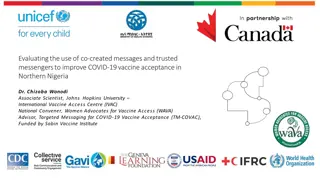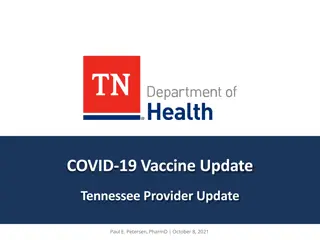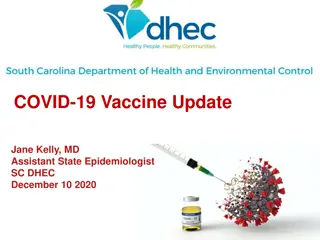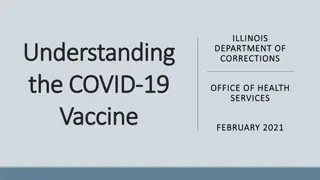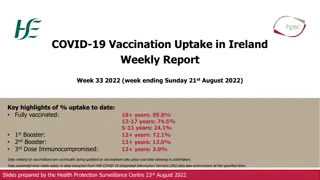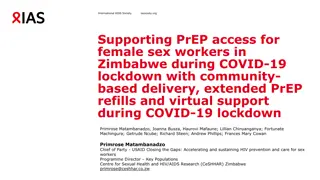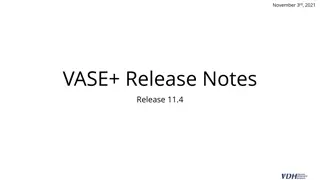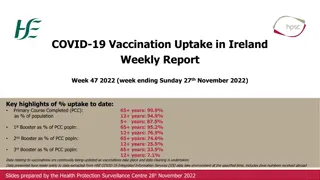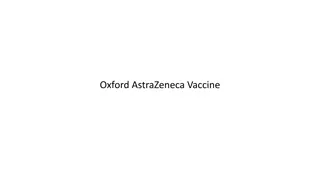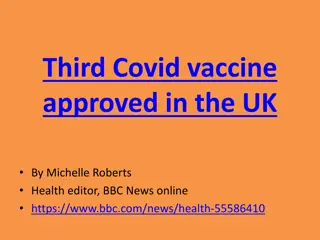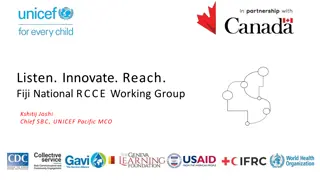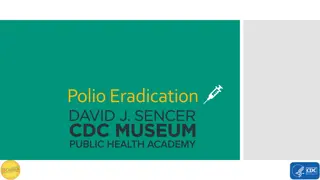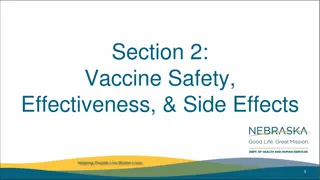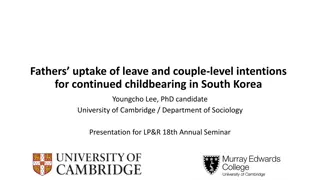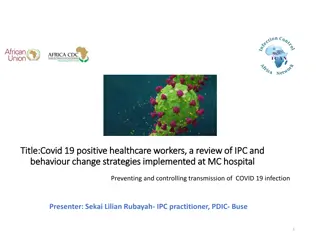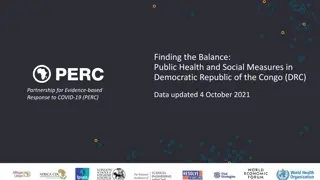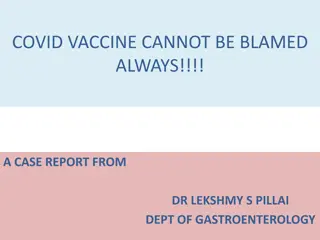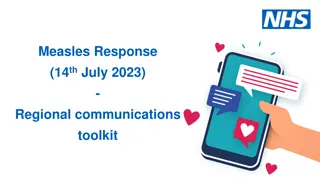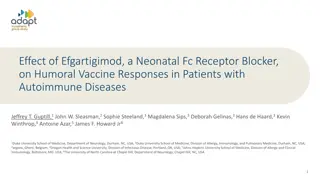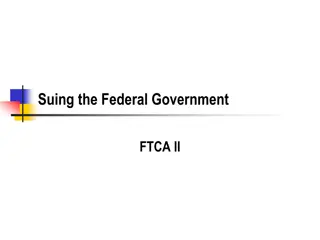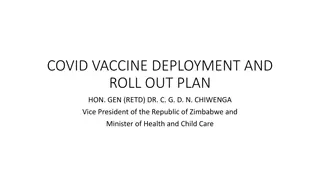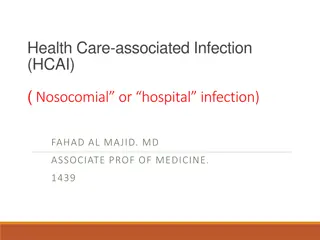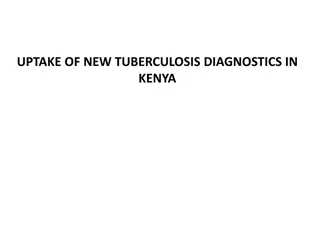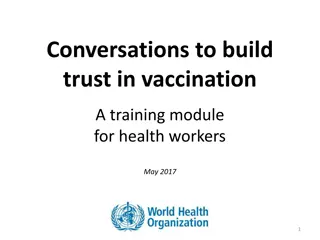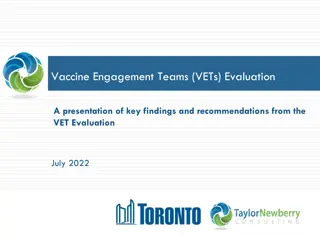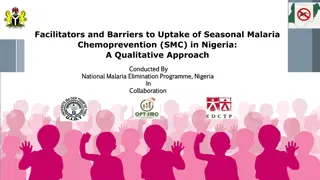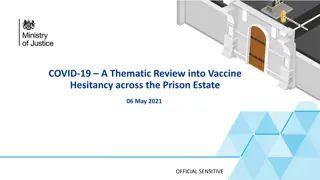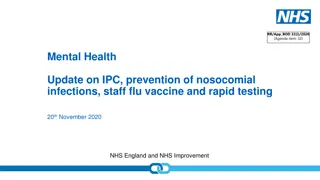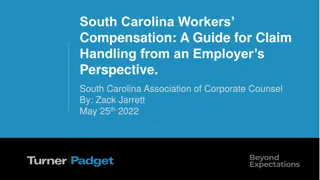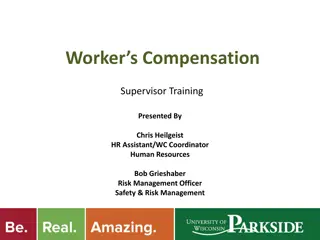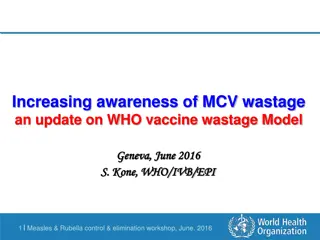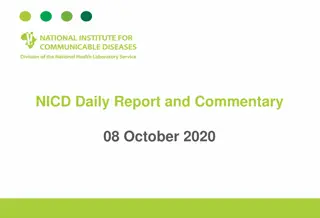Factors Associated with COVID-19 Vaccine Uptake Among Hospital-Admitted Health Workers in South Africa (2020-2022)
This preliminary analysis by Jonathan Ramodike explores factors influencing COVID-19 vaccine uptake among health workers in South Africa. The study aims to understand vaccination rates, determinants, and the impact on hospital admissions. Data from over 6,000 health worker records were analyzed to assess vaccination status and associated factors. Results and discussions provide insights into vaccination trends and mortality rates among admitted health workers.
Download Presentation

Please find below an Image/Link to download the presentation.
The content on the website is provided AS IS for your information and personal use only. It may not be sold, licensed, or shared on other websites without obtaining consent from the author. Download presentation by click this link. If you encounter any issues during the download, it is possible that the publisher has removed the file from their server.
E N D
Presentation Transcript
Factors associated with COVID-19 vaccine uptake among hospital admitted health workers in South Africa: 2020 to 2022 (preliminary analysis). Prepared by Jonathan Ramodike. DATE - 30th November 2020 Healthy, Safe, Happy & Sustainable Workplaces PROMOTING DECENT WORK THROUGH CUTTING EDGE RESEARCH, SPECIALISED SERVICES, INFORMATION, TEACHING AND TRAINING
Background Health workers (HWs) have an increased risk of acquiring COVID-19 than the general population because of the nature of their work. 2
Introduction COVID-19 vaccines play a critical role in continuing to protect against severe disease, hospitalization, and death from known circulating variants and are contributing to controlling the spread of the disease, thus their impact on infection and serious illness is significant. Both vaccinated and unvaccinated people also need to be aware of the additional protective behaviours required to control the pandemic. The Path to Immunity At this pace, it will take another 10 months until 75% of the population of the world has received at least one dose. The South Africa rollout of the vaccine target is to vaccinate 67% of the population by the end of 2021, which will allow us to achieve herd immunity. 3
Introduction continued Some Countries Vaccine uptake SA has vaccinated > 67% of public healthcare workers WC > 76% GP 64% 4
Aim To understand South African HWs COVID-19 vaccination uptake and its hypothesized determinants. Objective Describes the characteristics of admitted HWs in South Africa and assess factors associated with in hospital admissions and vaccine uptake. 5
Methods Study design Cross sectional survey (DATCOV surveillance database) using data on hospital admissions. Study setting Reports from 464/670 facilities in all nine provinces of South Africa. Study population Only HWs records (6012/10960 = 55%) that had complete information on vaccination status were used (No sampling was done as all of the applicable DATCOV surveillance records were used). Data collection Extracted records from electronic DATCOV surveillance database. Data analysis Data was cleaned and analyzed using Microsoft excel and STATA. Regression analysis was done on STATA. Ethical considerations Approval was granted from University of the Witwatersrand as part of a national surveillance program. 6
Results & Discussions Table 1: Vaccination and mortality status for COVID Table 1: Vaccination and mortality status for COVID- -19 admissions amongst HWs (N = 6012) 19 admissions amongst HWs (N = 6012) 7
Results & Discussions Table 2: Vaccination and mortality status for COVID Table 2: Vaccination and mortality status for COVID- -19 admissions amongst HWs and environmental factors (N = 6012) 19 admissions amongst HWs and environmental factors (N = 6012) 8
Results & Discussions Table 3: Vaccination and mortality status for COVID Table 3: Vaccination and mortality status for COVID- -19 admissions amongst HWs and their comorbidities (N = 6012) 19 admissions amongst HWs and their comorbidities (N = 6012) 9
Discussions This study 83% vaccination uptake. Statistically significant increased likely hood of the hospitalised HWs to have received the COVID-19 vaccine if they are working as doctors, nurses. Also admissions in Eastern Cape, KwaZulu-Natal and Western Cape. Statistically significant decreased odds to have received the COVID-19 vaccination were observed in admitted HWs who were, of the Caucasian ethnic group. Also admitted in a public health facility. Other studies 59% were non hesitant to vaccinate. Physicians were more likely to accept COVID-19 vaccination than administrative support staff, HWs aged 55 to 78 years, 45 to 54 years, and 35 to 44 years compared to participants aged 18 to 24 years (Cape Town: n = 395). 39,7% willingness to vaccinate. Less likely to receive COVID-19 vaccination < 30 years old. Doctors and nurses were more willing to vaccinate than other professions (Ethiopia: n = 614). 49,5% willing to vaccinate. Vaccine acceptance was predicted significantly by younger age, Doctors, Nurses and other allied health professionals (Nigeria: n = 422). 49,9% willing to vaccinate. Presence of a chronic diseases, being male and being a health worker were associated with increased likelihood to vaccinate (Zimbabwe: n = 1168). 70% willingness to vaccinate. Significant determinants of likelihood of participating in COVID-19 vaccine trial were HWs of older age. HWs in private health facilities were less likely to participate in a COVID-19 vaccine trial (Ghana: n = 1605). 10
Conclusions & Recommendations There was good COVID-19 vaccination uptake and HWs that were vaccinated generally had reduced odds of in-hospital mortality, although immunocompromised patients in the study had persistently high risk of mortality despite being vaccinated. Vaccine uptake is relatively understudied, such findings can offer important new insights about potentially modifiable factors. Future research should include qualitative research to seek to identify determinants and mechanisms, in order to inform intervention strategies for groups found to be less likely to be vaccinated. The information about what influences vaccine decisions and behaviours can be used by the global health community to design effective implementation strategies and behavioural interventions to ensure high coverage of the COVID-19 vaccine. 11
Acknowledgements National Institute for Communicable Diseases National Institute for Occupational Health 12
Healthy, Safe, Happy & Sustainable Workplaces WWW.NIOH.AC.ZA | TWITTER: @NIOH_SA | INFO@NIOH.NHLS.AC.ZA
